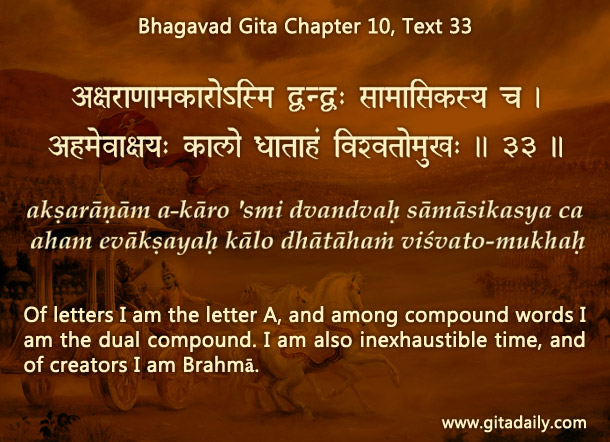Some people ask, “How can we know that God is still living?”
The notion that God can cease to exist is like the idea that a circle can stop being circular – it’s a definitional impossibility. A circle, by definition, can never be un-circular. Similarly, God can never stop existing. Because, by definition, he is the existence who is the basis of all existence
The Bhagavad-gita (11.39) states that nothing can exist without God. He is the cause of all causes and the sustainer underlying all sustainers. The possibility that he can stop existing doesn’t exist because he is not a being who exists in time. Things that exist within the domain of time come into existence and go out of existence. But time comes from him; he doesn’t come from time.
What about times when God descends as incarnations – does he not exist in time? Though he incarnates into this world and departs from here at specific times, he existed before his descent and he exists after his departure. To convey his existence’s eternality, bhakti savants use the words appearance and disappearance for his manifesting and becoming unmanifested – just as the sun continues to exist before it appears to our vision at sunrise and after it disappears from our vision at sunset.
In his eternal self-existence in his personal abode, the spiritual world, God exists beyond time. Among his many manifestations in this world, the Gita (10.33) mentions time as one. That time is his manifestation implies that time’s existence depends on him – his existence doesn’t depend on time.
By thus assimilating the definition of God, we understand that he can never cease to exist – the very existence of anything, indeed the very existence of existence itself, points to his foundational existence.
To know more about this verse, please click on the image
Explanation of article:
Podcast:
Download by “right-click and save”


Leave A Comment